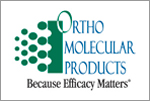- Fitness (19)
- News & Reviews (25)
- Nutrition (20)
- Science (10)
- Supplements (6)
- Technologies (8)
- The Arts (9)
Risks of Pill-Popping: Side Effects in the News
September 1st, 2015
By Cathie Dunal, MD, MPH: A few months ago we were astonished to learn that common medications—sleep meds like Sonata and Ambien, anxiety meds like Xanax and Valium, and over-the-counter allergy meds like Benadryl and Chlor-Trimeton—are all associated with increased risk of Alzheimer’s disease. A five percent increased risk with as little as ninety days of use in your lifetime! Yikes!
The latest medicine surprise is NSAIDS, or non-steroidal anti-inflammatories. They bring a ten to fifty percent increased risk of “cardiovascular thrombotic events”—heart attacks and strokes. We pop these pills like candy—the most common are Motrin/ibuprofen, Aleve/naproxen, and prescription anti-inflammatories. The new advisory from the FDA is to take as little as possible for as short a time as possible.
My take is that we ought to wake up to the possibility that popping a pill isn’t the optimal first step to treating medical conditions. (Note that I’m not talking about serious infections, endocrine conditions, etc.) The first step should be prevention via lifestyle. The next first step, assuming a problem is already raising its ugly head, is lifestyle treatment. Then—but only after addressing immediate and preventive lifestyle interventions—we should delve into non-pharmacological interventions–and prescriptions.
Let’s take aches and pains as an example. Continue reading »
Filed under News & Reviews, Science | Comments Off on Risks of Pill-Popping: Side Effects in the NewsAntibacterial Personal Care Products Are Linked to Allergies in Children
June 20th, 2012
 From Science Daily (June 19, 2012) This study gives us yet another reason to use more natural products! Cathie— Exposure to common antibacterial chemicals and preservatives found in soap, toothpaste, mouthwash and other personal-care products may make children more prone to a wide range of food and environmental allergies, according to new research from Johns Hopkins Children’s Center. Results of the NIH-funded study are published online ahead of print June 18 in the Journal of Allergy and Clinical Immunology.
From Science Daily (June 19, 2012) This study gives us yet another reason to use more natural products! Cathie— Exposure to common antibacterial chemicals and preservatives found in soap, toothpaste, mouthwash and other personal-care products may make children more prone to a wide range of food and environmental allergies, according to new research from Johns Hopkins Children’s Center. Results of the NIH-funded study are published online ahead of print June 18 in the Journal of Allergy and Clinical Immunology.
Using existing data from a national health survey of 860 children ages 6 to 18, Johns Hopkins researchers examined the relationship between a child’s urinary levels of antibacterials and preservatives found in many personal-hygiene products and the presence of IgE antibodies in the child’s blood. IgE antibodies are immune chemicals that rise in response to an allergen and are markedly elevated in people with allergies.
“We saw a link between level of exposure, measured by the amount of antimicrobial agents in the urine, and allergy risk, indicated by circulating antibodies to specific allergens,” said lead investigator Jessica Savage, M.D., M.H.S., an allergy and immunology fellow at Hopkins. Continue reading »
What ‘They’ Said
October 25th, 2011

More at ‘The Week’
Better Than Broccoli?
September 4th, 2011
 By Dr. John Dempster: Broccoli is part of the powerhouse brassica family of vegetables. Broccoli contains important phytochemicals that are released when they’re chopped, chewed, fermented, cooked or digested. The substances are released then break down into sulphorophanes, indole-3-carbinol and D-glucarate, which all have a specific effect on detoxification.
By Dr. John Dempster: Broccoli is part of the powerhouse brassica family of vegetables. Broccoli contains important phytochemicals that are released when they’re chopped, chewed, fermented, cooked or digested. The substances are released then break down into sulphorophanes, indole-3-carbinol and D-glucarate, which all have a specific effect on detoxification.
Broccoli sprouts can actually provide more benefit than regular broccoli as they contain 20 times more sulfurophane. Add these to your salads and get creative with them in your meals.
What do Broccoli Sprouts have in common with Beet Root, Sea Vegetables, Dandelions, Flax Seeds, Lemons, Garlic, Artichokes, Tumeric & Apples? All are natural, powerful detoxifiers and simple to add to our daily diets!
Healing Properties of Broccoli Sprouts: Continue reading »
Filed under Nutrition | Comments Off on Better Than Broccoli?NutritionFacts.Org
August 29th, 2011
What’s better for you than green tea? Cold-steeped green tea! Here is great info about antioxidants in tea, and more:
There is much more research-based information on Dr. Michael Gregor’s comprehensive website: NutritionFacts.Org — Meet Dr. Gregor:
Lose weight sleeping, supress cancer growth, decrease inflamatory markers, destroy cholesterol, lower risk of heart attack — with these tasty snacks? Continue reading »
Filed under Nutrition | Comments Off on NutritionFacts.Org


































